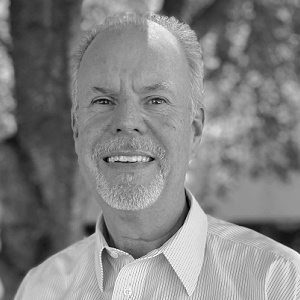
In this article, OMNI Senior Consultant Roger Dusing, PhD, explores the difficulties of measuring faculty job satisfaction at institutions of higher education, and the complexities of analyzing survey data when faculty rarely speak with one voice.
I read a news story in the Chronicle’s Daily Briefing recently that reported on two surveys of faculty conducted by the Collaborative on Academic Careers in Higher Education at Harvard University’s Graduate School of Education. The first was asking faculty why they choose to leave or stay at an institution, published just a week ago. The second was a survey on faculty job satisfaction published a month earlier. While both reports offer a lot of interesting information, what struck me was not where they agreed, but where they disagreed.
Institutions like to consider “what does the faculty think” about any given subject. Administrators like to meet with the faculty senate leaders and take the pulse of the faculty. I believe that these surveys point out what I’ve been saying for years – that there is no such thing as “the faculty’s opinion”. An institution’s faculty is a very diverse group of individuals, and rarely do those individuals agree on much of anything. This is not a criticism of faculty, it’s a criticism of administrators who say they want to listen to the faculty but instead only listen to a few faculty members.
Let’s look at some numbers. The survey, “Why Do Faculty Leave or Stay,” reports the following top 5 reasons to leave and reasons to stay with the percentage of respondents.

Again, some great information, but what I notice is that the top three responses are on both lists, and the numbers are relatively small. So, if 33% feel the salary is so low they must leave (or that someone else is offering more that attracts them) and 18% feel that the salary is good enough to cause them to stay, that means (to me) that the other 49% are reasonably satisfied with their pay. Similarly, 22% are upset with their department or institution’s reputation and 14% are attracted to it, so can we assume that 64% aren’t overly concerned either way?
And when we look at the job satisfaction data, what the faculty ask for that would improve the workplace are: culture (30%), leadership (28%) and support for work generally (26%). Compensation—the number one reason for 25% of faculty to leave—shows up in 4th place on this survey.
From all of this I draw two very different conclusions. Faculty, like staff, are people, and people generally want the same things. They want to do work that is meaningful to them; they want to be paid a fair wage to do that work; they want to work for and with people they respect and like; they want to be able to grow, personally and professionally; and they want to receive regular and meaningful recognition for their contributions.
Secondly, I believe that it is rarely accurate to suggest that faculty speak with one voice. Faculty members are highly educated individuals who think deeply about important subjects, and when you want to know what they think, don’t just call the president of the faculty senate. Instead, you need to talk to lots of faculty members, in different parts of the institution, with different ranks, tenure status, etc. And don’t expect to hear the same answer from everyone.
These two surveys provide some great insights into what faculty are thinking. They suggest there are some very important topics that institutions need to address. One of those topics is to ensure they don’t take a one-size-fits-all approach to dealing with faculty concerns.


Roger Dusing, PhD, is a Senior Consultant and the Higher Education Practice Leader at OMNI. He previously served as Chief Human Resource Officer at Park University for eleven years. With over 40 years of HR experience, including 30 years in C-suite level roles, he looks forward to reflecting his passion for higher education in his work to bring affordable, high-quality HR services to small- to medium-sized colleges and universities.
Roger holds a PhD in Business Management, with a concentration in Human Resources from Northcentral University, a Master of Science in Administration from Central Michigan University, and a BS in Industrial Engineering from Bradley University. He also authored the book “I’m Fired?!? A Business Fable About the Challenges of Losing One Job and Finding Another.”

